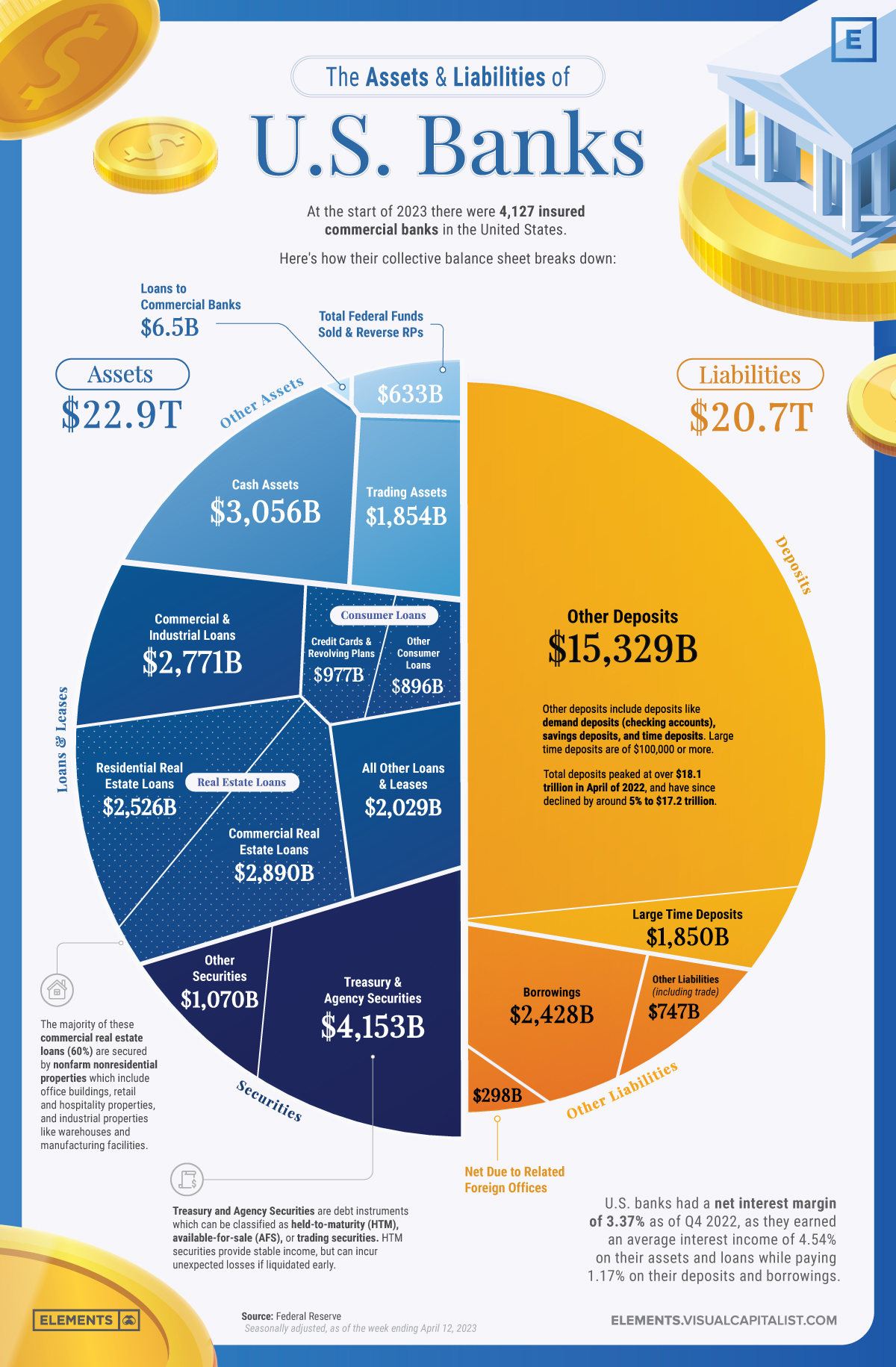The Federal Deposit Insurance Corporation (FDIC) has announced that they will impose a “special assessment” fee of 0.125% on uninsured deposits of US banks in excess of $5 billion.
The move comes after the deposit insurance fund was drained of $16 billion due to the collapse of Silicon Valley Bank and two other lenders.
The fee applies to all banks, but banks with assets of less than $5 billion will not have to pay any fee. Approximately 113 banks are expected to be affected.
While mid-sized banks will also have to pay the fee, larger banks with assets exceeding $50 billion will bear the majority of the cost.
The FDIC estimates that the top 14 US lenders will need to pay an annual fee of $5.8 billion. This could reduce their earnings per share by a median of 3%, according to Credit Suisse analyst Susan Roth Katzke.

The FDIC plans to collect the levy over eight quarters, beginning in June 2024. However, the agency may adjust the collection period depending on estimated losses to the insurance fund.
FDIC officials have said that the extended timeline of the special assessment fee, which is expected to start in June 2024 and be collected over eight quarters, is intended to reduce the impact on bank liquidity and have a minor effect on bank capital.
According to the FDIC, JPMorgan Chase & Co, Bank of America Corp, and Wells Fargo & Co will pay an annual fee of $1.3 billion, $1.1 billion, and $898 million, respectively.
TD Cowen analyst Jaret Seiberg has commented that the assessment fee is higher than expected, as the FDIC aims to recover the funds in just two years, whereas Seiberg had predicted a three-year spread.
The S&P 500 Banks Index and the KBW Regional Banking Index fell by 0.6% and more than 2%, respectively, on Thursday.
At the end of 2022, the FDIC fund, which insures customers’ bank deposits up to $250,000, was valued at $128.2 billion, as per the FDIC. Normally, banks pay a quarterly fee to finance the fund.
FDIC’s proposed fee to hit banks with high levels
The takeover of First Republic Bank and its sale to JP Morgan Chase this month is estimated to cost the fund an additional $13 billion.
Last month, Reuters conducted an analysis based on December data, which indicated that other regional lenders such as Comerica Bank (CMA.N), Western Alliance Bank (WAL.N), Zions Bank (ZION.O), and Synovus Financial (SNV.N) had a significant proportion of uninsured deposits.
As a result of the proposed special assessment, the S&P 500 Banks Index fell by 0.6%, while the KBW Regional Banking Index plummeted by over 2%.
The FDIC has suggested imposing a “special assessment” charge of 0.125% on uninsured deposits exceeding $5 billion, depending on the amount of uninsured deposits held by the end of 2022.
This caused the shares of Comerica Bank to drop by almost 7%, and Zions Bancorp and Synovus both saw a decline of over 4%, while Western Alliance fell by almost 1%.

Banks with assets less than $5 billion would be exempted from paying the fee. The FDIC fund currently stands at $128.2 billion at the end of 2022, but following the collapse of Silicon Valley Bank and two other lenders, it had been drained of $16 billion, and the regulator now needs to replenish the deposit insurance fund.
According to officials from the Federal Deposit Insurance Corporation (FDIC), the special fee that will be charged to banks is planned to be collected over a period of eight quarters, starting in June 2024.
This extended timeline has been designed to prevent any significant impact on bank liquidity and is not expected to have a significant effect on bank capital.
The top 14 US lenders, including JPMorgan Chase, Bank of America, and Wells Fargo, are expected to bear the highest cost, with JPMorgan expected to pay $1.3 billion annually, followed by Bank of America at $1.1 billion and Wells Fargo at $898 million.










